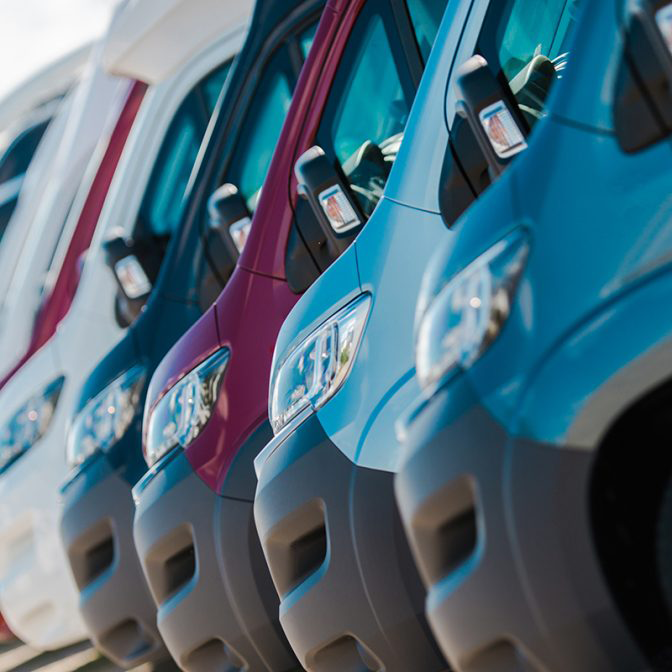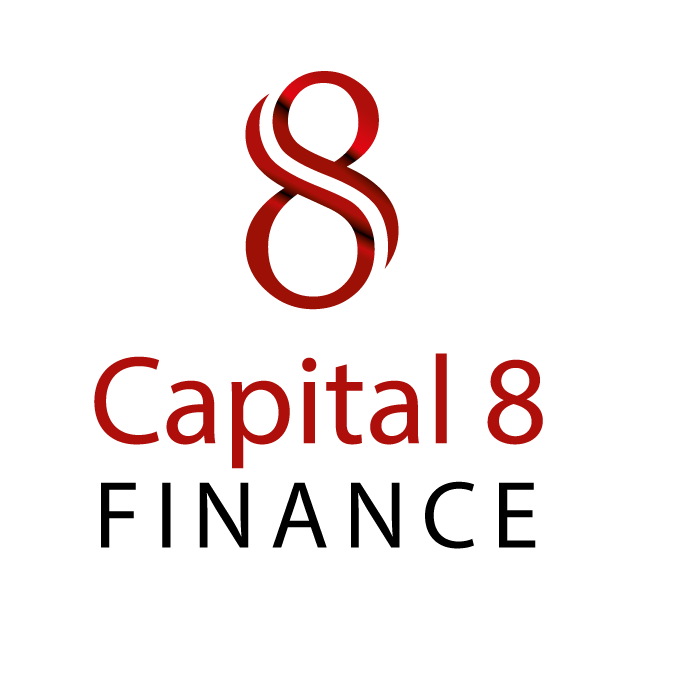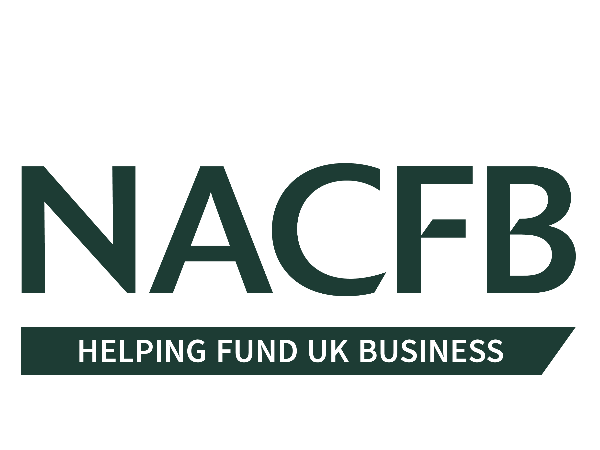Asset Finance Scotland & UK
Equipment & Vehicle Finance for Businesses
Introduction
Need new equipment but don’t want to tie up cash flow? Whether you need commercial vehicles, production machinery, IT equipment, or specialist tools, asset finance allows you to acquire the equipment your business needs while preserving working capital.
At Capital 8 Finance, we help businesses across Scotland and the UK finance essential equipment through hire purchase, leasing, and sale-and-leaseback arrangements. From a single van to a fleet of HGVs, from kitchen equipment to construction machinery, we’ll find you the most cost-effective solution from our whole-of-market lender panel.

What Is Asset Finance?
Asset finance is a way of acquiring business equipment without paying the full cost upfront. Instead of using cash reserves or overdrafts, you spread the cost over monthly payments while using the equipment to generate revenue.
The equipment itself serves as security for the loan, which means asset finance is often easier to obtain than unsecured business loans – even if you have limited trading history or some adverse credit.
Here’s a simple example: If you need a £30,000 van for your business, an asset finance provider can supply it with a £300-500 monthly payment over 3-5 years. You get immediate use of the van, preserve your cash flow, and the payments are typically tax-deductible as a business expense.
Asset finance is available for virtually any business equipment with a resale value – from vehicles and machinery to IT equipment, medical devices, and even furniture.
Types of Asset Finance We Arrange
Hire Purchase (HP)
What it is: You pay an initial deposit (typically 10-30% of the equipment value), then make fixed monthly payments over an agreed term. At the end of the term, you own the equipment outright after paying a small option-to-purchase fee.
Best for:
- Businesses that want to own the equipment eventually
- Equipment with a long useful life (vehicles, machinery, tools)
- Companies that prefer straightforward ownership structure
How it works: The lender purchases the equipment and you hire it from them. Each monthly payment includes both capital repayment and interest. Once all payments are made, ownership transfers to you.
Typical terms: 1-7 years, depending on equipment type and value
Tax treatment: You can claim capital allowances on the equipment and deduct interest payments as a business expense.
The hire purchase providers we work with across Scotland and the UK understand the needs of businesses, from seasonal cash flow variations to equipment requirements specific to local industries.
Finance Lease
What it is: You lease the equipment for a fixed period (typically 2-5 years) and make regular rental payments. At the end of the lease, you can continue leasing, return the equipment, or purchase it at fair market value.
Best for:
- Equipment that becomes outdated quickly (IT, technology, vehicles)
- Businesses that prefer to upgrade regularly
- Companies wanting to keep assets off their balance sheet
How it works: The lender owns the equipment throughout the lease period. You pay monthly rentals for the right to use it. The equipment stays off your balance sheet, which can improve financial ratios.
Typical terms: 2-5 years
Tax treatment: Monthly lease payments are fully tax-deductible as a business expense. The equipment doesn’t appear on your balance sheet.
This is ideal if you want the latest equipment without the commitment of ownership, or if you need to preserve balance sheet capacity for other purposes.
Operating Lease (Contract Hire)
What it is: Similar to finance lease, but typically shorter terms and you never intend to own the equipment. At the end of the contract, you simply return it and potentially lease newer equipment.
Best for:
- Vehicles (especially company car fleets)
- Equipment requiring regular upgrades
- Businesses wanting predictable monthly costs with maintenance included
How it works: You pay a monthly rental to use the equipment. The lender handles depreciation risk. Maintenance and servicing can often be included in the monthly payment.
Typical terms: 1-4 years
Tax treatment: Monthly payments are fully tax-deductible. Equipment stays off your balance sheet.
Operating leases are particularly popular for vehicle fleets, where you want predictable costs and the ability to upgrade to newer, more efficient vehicles regularly.
Sale and Leaseback
What it is: You sell equipment you already own to a finance provider, then immediately lease it back. This releases the cash value tied up in the equipment while allowing you to continue using it.
Best for:
- Businesses needing immediate cash injection
- Companies with valuable equipment on their balance sheet
- Firms wanting to improve cash flow without selling operational assets
How it works: The lender purchases your equipment at fair market value and pays you cash. You then lease it back under an agreed contract, making monthly payments to continue using it.
Typical terms: 2-5 years
Tax treatment: You receive cash upfront (which may have tax implications), then lease payments become tax-deductible business expenses.
Real example: A manufacturing client owned £80,000 of production machinery outright but needed cash for a new contract. Sale and leaseback released £70,000 in cash within two weeks, allowing them to fulfill the order while continuing to use their existing equipment.
Equipment We Finance
Commercial Vehicles
From single vans to entire fleets, we arrange finance for:
- Light commercial vehicles (vans, pickups)
- Heavy goods vehicles (HGVs, lorries, articulated trucks)
- Specialist vehicles (refrigerated vans, tippers, flatbeds)
- Company cars and executive vehicles
- Minibuses and coaches
- Trailers and semi-trailers
Commercial vehicle finance is particularly valuable for logistics companies, construction firms, and service businesses across Scotland and the UK that need reliable transport but want to preserve cash flow.
Typical terms: 3-5 years for vans, 5-7 years for HGVs
Construction & Plant Machinery
We finance all types of construction equipment:
- Excavators, diggers, and earthmoving equipment
- Dumpers and site vehicles
- Cranes and lifting equipment
- Concrete mixers and pumps
- Scaffolding and access equipment
- Power tools and generators
Construction equipment finance allows you to take on larger projects without tying up capital in machinery that may only be needed for specific contracts.
Typical terms: 3-7 years depending on equipment type
Manufacturing & Production Equipment
Finance for production and processing machinery:
- CNC machines and lathes
- Printing and packaging equipment
- Food processing machinery
- Welding and fabrication equipment
- Assembly line equipment
- Quality control and testing equipment
Manufacturing equipment finance helps you maintain production capacity, upgrade to more efficient machinery, and respond to increased demand without cash flow constraints.
Typical terms: 5-7 years for heavy machinery
IT & Office Equipment
Technology and office equipment finance:
- Computer hardware and servers
- Networking equipment and infrastructure
- Telephone systems
- Office furniture and fit-out
- Point-of-sale systems
- Security systems and CCTV
IT equipment finance is particularly valuable because technology becomes outdated quickly. Leasing allows you to upgrade regularly without large capital outlays.
Typical terms: 1-3 years for IT, 3-5 years for furniture
Specialist Equipment
We also finance industry-specific equipment:
- Medical and dental equipment
- Agricultural machinery (tractors, harvesters, irrigation)
- Catering and kitchen equipment
- Gym and fitness equipment
- Beauty salon equipment
- Printing and signage equipment
Having run a hospitality business for over 10 years, I particularly understand the equipment needs of restaurants, takeaways, and catering businesses – from commercial ovens and refrigeration to extraction systems and food prep equipment.
Industries We Serve
Asset Finance for Construction Companies
Construction businesses need reliable equipment but face unpredictable cash flow due to payment delays and retention periods. Asset finance allows you to:
- Acquire plant and machinery without large upfront costs
- Preserve cash flow for wages, materials, and subcontractors
- Take on larger contracts requiring specialist equipment
- Replace aging equipment before breakdowns cause project delays
We help construction companies across Scotland, England and Wales finance everything from small tools to heavy plant machinery, with flexible terms that match project timelines.
Asset Finance for Logistics & Haulage
Transport businesses live or die by vehicle reliability. Asset finance helps you:
- Build or expand your fleet without depleting cash reserves
- Replace aging vehicles before maintenance costs spiral
- Upgrade to more fuel-efficient or compliant vehicles (ULEZ, emissions standards)
- Match vehicle acquisition to contract wins
Vehicle finance for haulage companies often includes maintenance packages, giving you predictable monthly costs and reducing downtime.
Asset Finance for Manufacturing
Manufacturers need to invest in equipment to remain competitive, but machinery costs can be substantial. Asset finance allows you to:
- Upgrade to more efficient production equipment
- Increase capacity to meet growing demand
- Adopt new technology without large capital expenditure
- Replace worn equipment before it impacts production quality
We understand that manufacturing equipment often has a long useful life, so we arrange longer finance terms (5-7 years) to keep monthly payments affordable.
Asset Finance for Hospitality
Having run a hospitality business myself, I understand the equipment challenges facing restaurants, hotels, and catering businesses. Asset finance helps you:
- Equip new premises without exhausting startup capital
- Replace aging kitchen equipment before health inspections or breakdowns
- Upgrade to more energy-efficient equipment (reducing running costs)
- Expand capacity during growth phases
From commercial ovens and refrigeration to extraction systems and dishwashers, we can finance all the equipment your hospitality business needs.
Benefits of Asset Finance
Preserve cash flow – Spread equipment costs over monthly payments rather than paying upfront, keeping cash available for day-to-day operations.
Fast approval – Asset finance is often quicker to arrange than business loans because the equipment serves as security. Decisions typically within 24-48 hours.
Accessible to most businesses – Available to businesses with limited trading history or some adverse credit, because the equipment itself provides security.
Tax efficient – Monthly payments are typically tax-deductible as a business expense. With hire purchase, you can also claim capital allowances.
Fixed monthly costs – Fixed-rate agreements give you predictable monthly payments, making budgeting and cash flow forecasting easier.
Flexible terms – Match the finance term to the equipment’s useful life or your business needs. Terms from 1-7 years available.
Keep assets off balance sheet – With leasing, equipment doesn’t appear on your balance sheet, which can improve financial ratios and borrowing capacity.
Upgrade regularly – Leasing allows you to upgrade to newer, more efficient equipment at the end of each term without disposal hassles.
Maintenance packages available – Some agreements include maintenance and servicing, reducing unexpected repair costs and administrative burden.
How Much Does Asset Finance Cost?
Asset finance costs depend on several factors: equipment type, amount financed, term length, deposit size, and your business profile.
Typical costs:
- Interest rates:5-12% APR (lower for established businesses, higher for startups or adverse credit)
- Deposit:10-30% of equipment value (some lenders offer 0% deposit)
- Arrangement fees:£0-£500 depending on lender and deal size
Example cost breakdown:
Equipment: £30,000 commercial van
Deposit: £6,000 (20%)
Amount financed: £24,000
Term: 5 years (60 months)
Interest rate: 8% APR
Monthly payment: £486
Total repayable: £29,160 + £6,000 deposit = £35,160
Total interest cost: £5,160 over 5 years
Tax benefit: If you’re a basic rate taxpayer (20%), you can claim approximately £97 per month in tax relief on the interest portion, reducing your effective monthly cost to around £389.
Compare this to paying cash:
- Paying £30,000 upfront removes that cash from your business
- You lose the opportunity to use that £30,000 for revenue-generating activities
- Asset finance lets you keep the £24,000 working in your business while still acquiring the van
Our promise: We search the whole-of-market to find you the most competitive rates and secure the best deal for your business.
Am I Eligible for Asset Finance?
Most businesses qualify for asset finance if you meet these basic criteria:
Minimum requirements:
- Trading for at least 6-12 months (some lenders accept startups)
- UK-registered business (limited company, sole trader, or partnership)
- Equipment has resale value and business use
- Ability to afford monthly payments from business income
You may still qualify even if:
- You’re a relatively new business (under 2 years trading)
- You have some adverse credit history
- You’ve been declined by your bank for traditional lending
- Your business has seasonal or fluctuating revenue
Typical finance amounts:
- Minimum: £1,000 (some lenders)
- Maximum: £500,000+ (depending on equipment and business profile)
- Most common: £5,000-£100,000
Not sure if you qualify? Contact us for a free, no-obligation assessment. Even if you’ve been declined elsewhere, we have access to specialist lenders who consider complex situations.
Why Choose Capital 8 Finance?
I Understand Business Owner Challenges
I ran my own business for over 10 years, holding every role from operations to ownership. I understand the challenge of needing equipment to grow but not wanting to deplete cash reserves or max out overdrafts.
This background gives me genuine empathy for your situation and practical insight into equipment financing decisions.
Whole-of-Market Access
We’re not tied to any single lender. I have access to:
- High street banks (Lloyds Bank Asset Finance, HSBC Asset Finance, Barclays Asset Finance)
- Challenger banks (Aldermore, Shawbrook, Close Brothers Asset Finance)
- Specialist asset finance providers (Lombard (NatWest/RBS), Hitachi Capital, Shire Leasing, Paragon Bank)
- Alternative lenders (Optimum Finance, JCB Finance, Santander Asset Finance)
- Complex case specialists for businesses with adverse credit or limited trading history
This means I can compare rates, terms, and eligibility criteria across the entire UK market to find you the best solution.
Scotland-Based, UK-Wide Service
Based in Dundee, I serve business owners across Scotland and throughout the UK. I understand the unique challenges of Scottish businesses and have completed asset finance cases across all regions.
As a Scottish asset finance broker, I can connect you with lenders who understand local business conditions and industry requirements.
Fast, Personal Service
As a solo operator, you deal directly with me throughout the entire process. No call centres, no account managers who don’t know your situation.
I’ll respond to your enquiry within 24 hours, provide you with options within 48 hours of receiving your information, and keep you updated at every stage.
Get Your Free Asset Finance Quote
Ready to finance the equipment your business needs?
Here’s what happens next:
- Initial consultation– We’ll discuss your equipment needs, budget, and preferred finance structure
- Quote provided– Within 24-48 hours, I’ll provide you with finance options, rates, and terms
- Application submitted– Once you choose a lender, I’ll handle the entire application process
- Equipment delivered– Most asset finance is approved within 3-5 days, then you can order your equipment
- Finance completed– Once the equipment is delivered, the finance is drawn down and you start making payments
Contact Capital 8 Finance today for your free asset finance quote.
Frequently Asked Questions
What’s the difference between hire purchase and leasing?
Hire purchase means you own the equipment at the end of the term after making all payments. Leasing means you never own it – you’re renting it for a fixed period, then either return it, continue leasing, or purchase it at market value.
How quickly can I get asset finance?
Decisions are typically made within 24-48 hours. Once approved, you can order your equipment immediately. The finance is drawn down once the equipment is delivered, which could be within days for stock items or weeks for custom/manufactured equipment.
Can I finance used equipment?
Yes, most lenders will finance used equipment up to a certain age (typically 5-10 years old depending on equipment type). Used equipment finance often requires a larger deposit and may have shorter terms.
What deposit do I need?
Typically 10-30% of the equipment value, though some lenders offer 0% deposit for established businesses with strong credit. Larger deposits usually secure better interest rates.
Can I finance multiple items at once?
Yes, you can finance an entire equipment package under a single agreement. This is common for business startups (complete office fit-out) or expansion projects (multiple vehicles or machines).
What happens at the end of the finance term?
With hire purchase, you own the equipment after paying a small option-to-purchase fee (typically £1-£100). With leasing, you can return it, continue leasing, or purchase it at fair market value.
Can I settle the finance early?
Yes, most agreements allow early settlement, though some lenders charge early repayment fees (typically 1-2 months’ interest). We’ll explain any early settlement terms before you commit.
What if the equipment breaks down?
You’re responsible for maintaining and repairing the equipment during the finance term. However, many agreements include maintenance packages, and you can usually add equipment insurance to cover breakdown costs.
Can I get asset finance with bad credit?
Possibly. Asset finance is secured against the equipment, so lenders are often more flexible than with unsecured lending. We have access to specialist lenders who consider adverse credit, CCJs, and even previous insolvencies.


